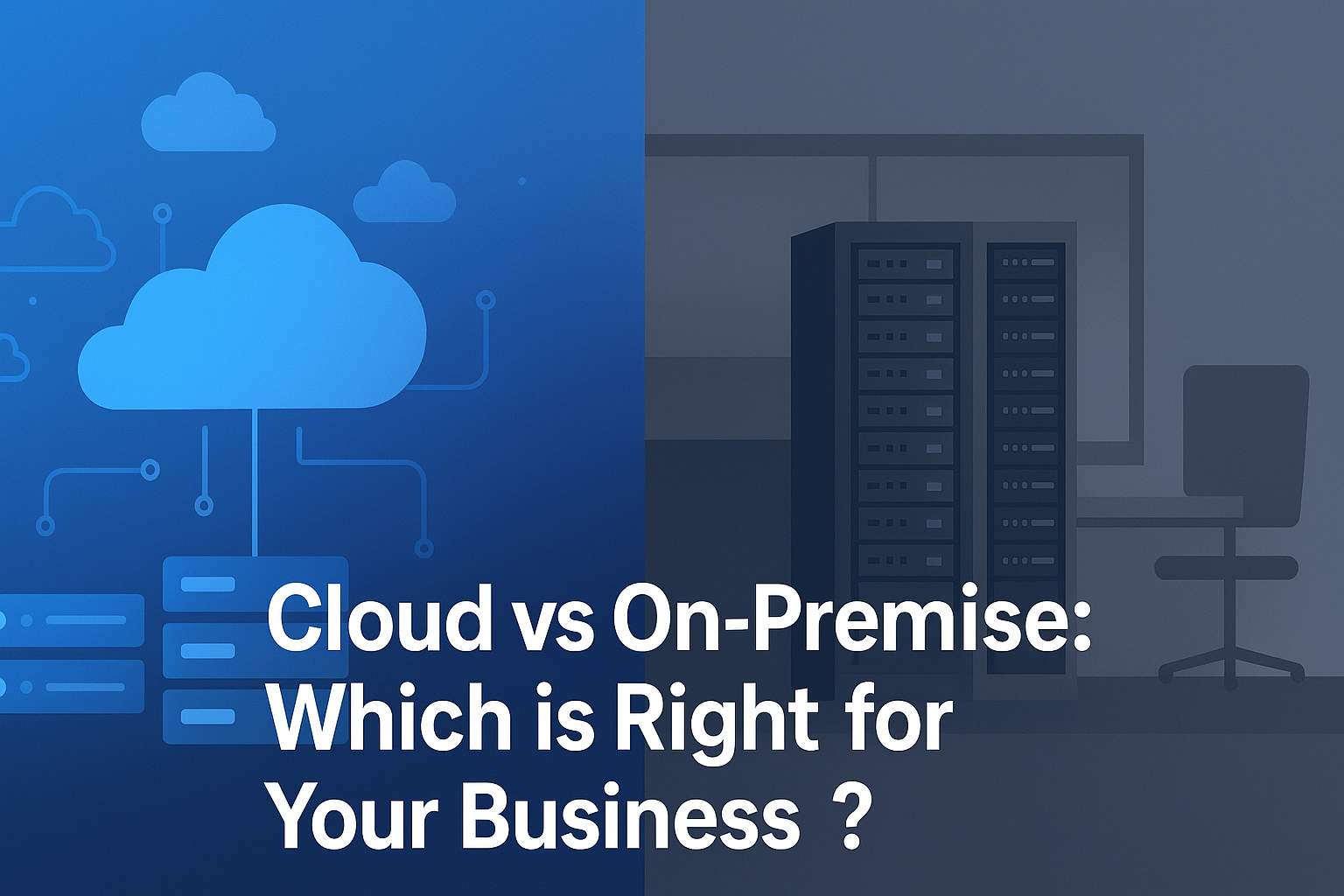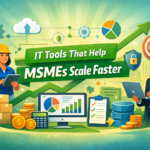Cloud vs On-Premise: Which is Right for Your Business?
In today’s digital-first world, businesses face a critical decision when it comes to managing their IT infrastructure: Cloud vs On-Premise. Both options have unique advantages and challenges, making it essential to evaluate which solution aligns best with your business goals.
Understanding Cloud Solutions
Cloud solutions refer to software, storage, or services hosted online and accessed via the internet. Popular examples include Microsoft Azure, Amazon Web Services (AWS), and Google Cloud.
Key Benefits of Cloud:
-
Scalability: Businesses can easily scale resources up or down as per demand.
-
Cost Efficiency: Pay-as-you-go pricing reduces upfront investment.
-
Flexibility: Employees can access applications and data from anywhere.
-
Automatic Updates: Vendors handle software updates and maintenance.
However, cloud solutions depend heavily on internet connectivity and may raise data compliance concerns for certain industries.
Understanding On-Premise Solutions
On-premise solutions are hosted locally on a company’s servers and infrastructure. This traditional approach has been widely used for decades.
Key Benefits of On-Premise:
-
Full Control: Businesses have complete authority over their infrastructure and data.
-
Security Assurance: Sensitive data remains within company-owned servers.
-
Customization: Tailored configurations to meet specific business requirements.
On the downside, on-premise systems involve high upfront costs, ongoing maintenance, and limited scalability compared to cloud.
Cloud vs On-Premise: A Comparative View
To make an informed decision, businesses should consider these critical factors:
-
Cost: Cloud reduces capital expenditure with subscription-based pricing, while on-premise requires significant hardware and maintenance costs.
-
Scalability: Cloud scales effortlessly, while on-premise scaling demands more physical infrastructure.
-
Security: On-premise offers physical control, but cloud providers often have advanced cybersecurity measures in place.
-
Flexibility: Cloud enables remote work, whereas on-premise is more location-dependent.
-
Maintenance: Cloud vendors handle updates, while on-premise requires in-house IT teams.
Which is Right for Your Business?
The choice between cloud vs on-premise depends on your business size, budget, industry, and long-term goals.
-
Choose Cloud if you want scalability, flexibility, lower upfront costs, and global accessibility.
-
Choose On-Premise if your business deals with highly sensitive data, requires strict compliance, or prefers complete control over infrastructure.
In many cases, companies adopt a hybrid approach, combining the security of on-premise with the scalability of cloud.
Conclusion
The cloud vs on-premise debate is not about one being universally better but about which suits your unique business needs. By carefully assessing cost, scalability, flexibility, and compliance, businesses can confidently choose the right infrastructure for growth and efficiency.






